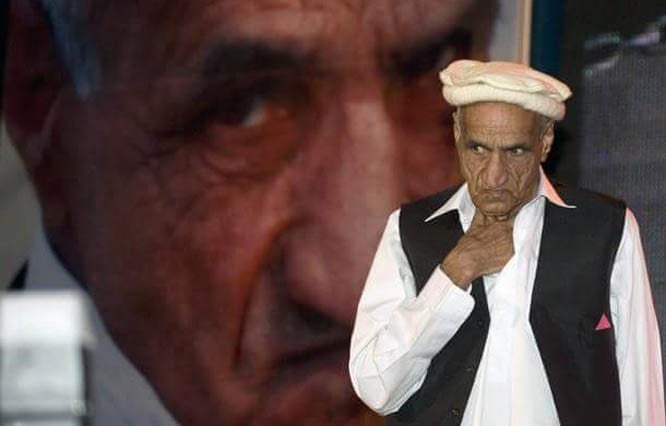
There is a certain conviction among some that art is another name for propaganda

The new minister of culture in the Punjab has been insisting that a play on Sipahi Maqbool Hussain be written and staged at the state sponsored Alhamra. Fast forwarded by the ministerial wish, probably the play has already been scripted and will be produced shortly in more cities than one.
There is a certain conviction, especially among some, that art is another name for propaganda. And that the play, as did some of the films which have been screened and produced in the last few years in the country will whip in the people a valued sentiment called patriotism.
There is a general view that Pakistanis are not patriotic enough and that their loyalty to the country falls short of the expectations and desired level by those that have achieved the pinnacle of power in the country. When in opposition, of course, they are much more critical of most things including the dozes of hand-me-down patriotisms issued by the deep state, but once enthroned and in control of the levers of power they start to sing from the same hymn sheet.
This is also generally the mantra of those who think that the country should be burning with the passion of love for the land. They take it to the level of religious frenzy where the idea of any other version or narrative is subject to the severest of penalties justifying whatever kind of reprisals.
It is an old debate and one that will recur forever because art may have one side to it that may seem to be propaganda but it has other sides and dimensions too which can make it be seen, read and interpreted totally differently or in more ways than one. And that multi dimensionality of art, the red rag of plurality which many believe should be charged against and torn asunder.
At one time it was seen as beneficial if institutions under the state flourished to promote and propagate the arts. Funding and support from the state does provide a shield against the economic insecurities that artists chronically face and the uncertainly that their vocation brings, but the down side is the government failing to maintain the distinction between the state and the government in power, and with this they begin to blatantly use institutions for their own purposes. It does not remain a platform for free expression, rather a pulpit for spewing self-serving sermons.
In the beginning the support to the institutions both in building infrastructure and then funding in the Soviet Union was hugely admired by others, especially in the colonies and the newly liberated states after the second world war but gradually it was found out that only those that sang paeans to the persons and system were rewarded and facilitated, while others ignored, marginalized and some actually persecuted. The same has been the case in some countries that followed in general that system where the state stepped in to provide the infrastructure and the monetary support to keep the wheels moving.
Of course, there is one side that works actively towards suppressing the arts, muffling voices and even sending writers and artistes into exile, the other simply starves artistes who express their minds and hearts. The state provides ample opportunities to those who are willing to propagate the state agenda but when such artistes get exposure true voices are muffled or muzzled.
Maqbool Hussain, the details about him have been sketchy may have been a great man, victimized, tortured and one who held his fortitude, but little is known about him. He was captured in the 1965 war and released after 40 years in prison. He died recently in Pakistan. A television play on the state-run Pakistan Television sponsored by Inter Services Public Relations has already been televised about ten years ago but it is being felt that since his death more should be done to highlight his contribution to the cause of nationalism. But if so, writers, poets, and film makers should come forward on their own to glorify the man and sanctify his heroism. The government needn’t interfere for even if he is a man as is being portrayed; the support or sponsorship of the government only raises justifiable questions about impartiality, integrity and neutrality.
It is a very good sign that Pakistanis are not cowed to be speaking in one voice, propagating a narrative that has one interpretation and exposing a unity that recalls the total conformity of a drill. All this, however chaotic, has been able to promote a democratic lack of uniformity that has ensured freedoms, albeit not in the ideal sense, but by precluding the ultimate synchronization that may only be the reflection of a regimented order.